
In the water choice app PickAqua, you can find all waters by its dominant element or various other value parameters.

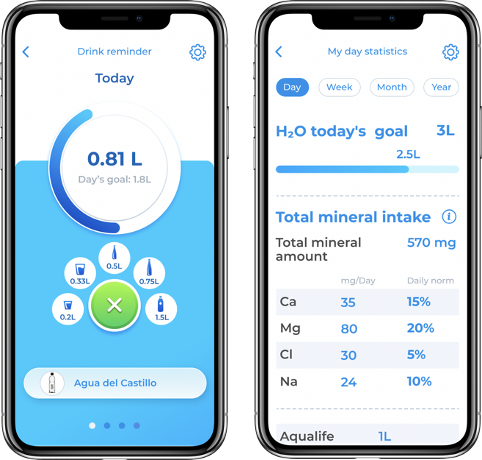
Home » Water stories » Blog » Water in Sports
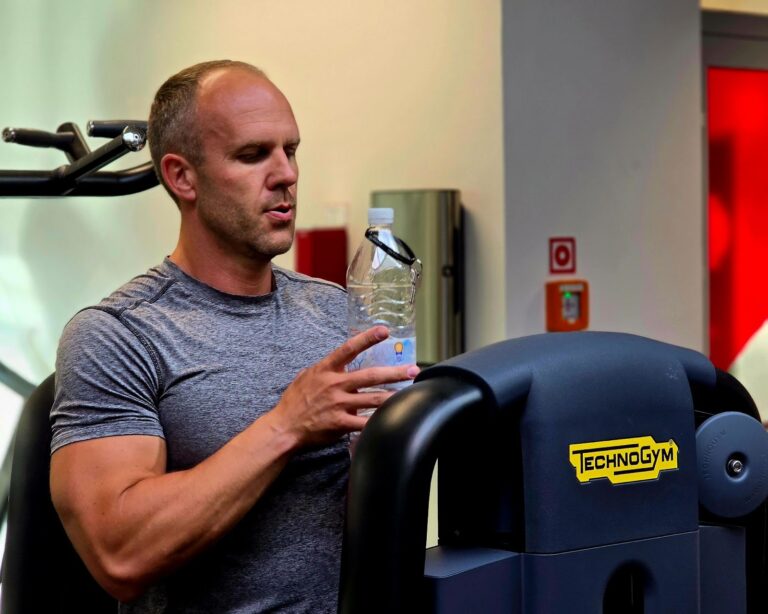
Exercise is an important part of a healthy lifestyle. But for sport to be really healthy, proper hydration is essential. Maintaining adequate hydration is not just a recommendation – it is a crucial component to optimize physical performance during exercise.
Studies have been conducted in athlete environments about knowledge, attitude, and actual implementation of a hydration plan. Often, the potential of proper hydration is significantly underestimated, which can have a significant impact on an athlete’s physical and mental performance.
Water is the unsung hero of physical activity. It regulates body temperature, lubricates joints, reduces the risk of injury and helps supply nutrients.
Sweat is the body’s natural cooling system during exercise. Without this automatic temperature regulation, the body would overheat during exercise. But the more we sweat, the more we lose water and electrolytes, or minerals. Therefore, to maintain peak performance, it is important to restore this loss immediately. Even a small loss of one litre of fluid during sport can cause a 10% reduction in performance, affecting muscle coordination, concentration and increasing the risk of injury.
A simple way to assess your hydration status is to check the color of your urine. In particular, pay attention to the color of your morning urine. Light yellow or pale straw-colored urine is a sign of adequate hydration. Constipation, physical weakness, fatigue, low blood pressure, headaches, dry mucous membranes, restlessness, confusion, shivering, cold extremities, cramps and dizziness can also be signs of dehydration.
The average fluid loss during sport is about 0.5 to 1.5 liters per hour, which can be as high as 3 liters in extreme conditions such as Bikram yoga, or hot yoga. To calculate fluid loss, weighing before and after exercise should be done, taking into account clothing and bladder emptying.
Sports activities increase the need for sodium, chloride, potassium, calcium, and magnesium.
So, water rich in these minerals should be an option. In addition, minerals are absorbed very efficiently from natural water. Water with a strong salty taste will leave the body more slowly. This means that the total mineralization of such water will range from 1 500 mg/l up to 10,000 mg/l.
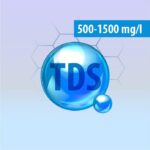
Gradation of total mineralisation:
Mineral content in sweat:
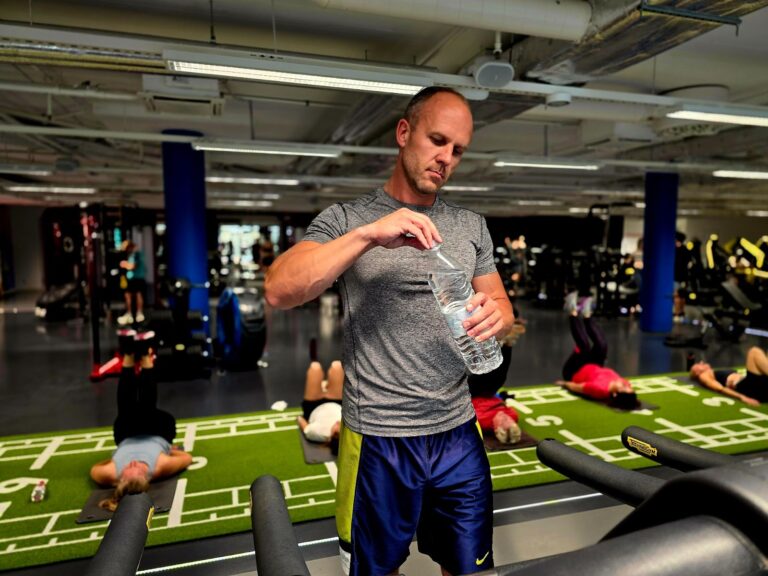
Prepare for a thorough sweating. The day before a competition, sauna or serious training session, it is highly recommended to ensure adequate hydration throughout the previous day.
Hydrating before the workout itself is similar to fuelling your car before a journey. Try to drink water at least two hours before your workout to allow your body time to absorb and break it down efficiently. A general guideline is to drink about 500 to 700 milliliters of water two to three hours before exercise. Adjust this amount depending on individual factors such as body weight, perspiration, goal, and intensity of the workout.
Consistency is key. Instead of drinking a large amount of water at once, drink steadily throughout the workout. Small, frequent sips help maintain fluid balance. Listen to your body: thirst is a serious signal that your body needs water. Never ignore it. During moderate activity lasting up to one hour, try to take in at least 0.5 to 1 liter of water per hour.
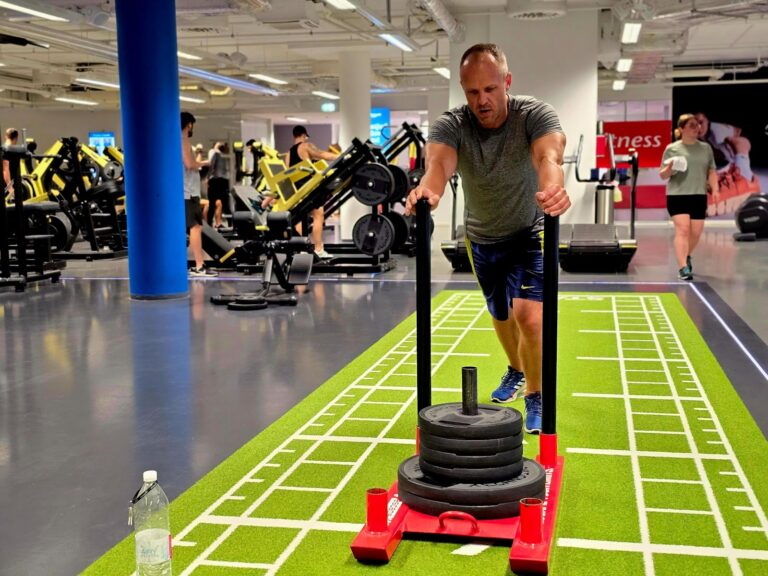
If the activity lasts more than 60 minutes, consider using a mixture of mineral water and fruit juice. It is popular among German athletes to add natural juice to the water in a 50/50 mix. This ensures electrolyte and energy replacement and less sweating during intense exercise.
Sports drinks can also be useful if the activity is intense. But sports drinks can contain a lot of sugar, so use them only when necessary.
They should not contain excessive sugar and should be hypotonic or isotonic to ensure rapid absorption. In the context of sports drinks and hydration, ‘hypotonic’ refers to a solution with a lower concentration of solutes (e.g. sugars and electrolytes) than body fluids.
Isotonic refers to a solution with a concentration equal to that of body fluids. Isotonic drinks are designed to effectively replace fluids and electrolytes lost during exercise.
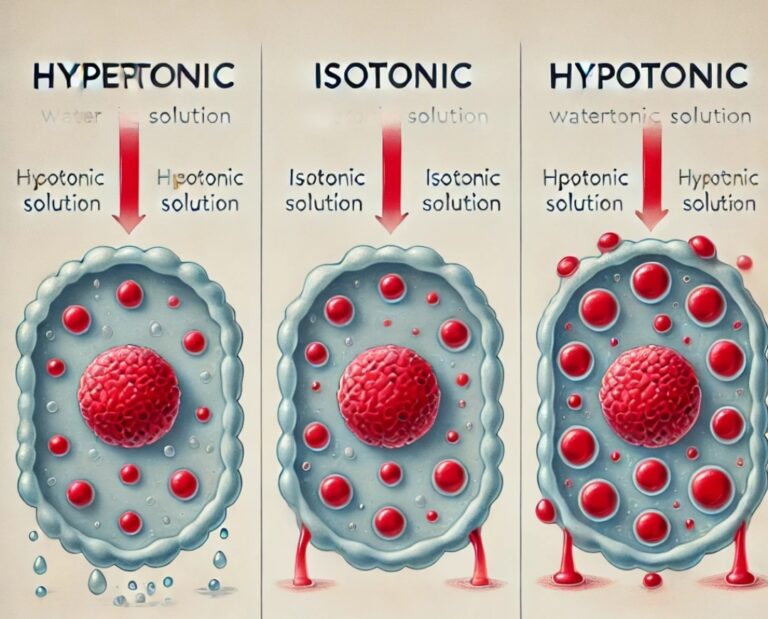
A factor that affects the absorption of the drink:
Temperature – cold drinks take longer to settle in the stomach and are absorbed more slowly.
The natural dope in sport – the right choice of water. It all starts with setting a goal. For athletes, natural mineral waters with specific mineral content are preferable, taking into account individual needs. We need to understand what we want and then choose the water according to the functionality of its composition.
Playing sports is not the same as sleeping on the sofa. Accordingly, water should also be optimized for sports performance. A bottle with a sports cork does not necessarily mean that it is sports water. During low and insignificant loads, it will be enough to drink any water, except distilled or osmo-filtered – such waters are aggressive by their nature and will dehydrate the body even more during sweating.
But if you want to improve your sports performance, recover much faster, and even improve your mood by enjoying a state of rest, you should choose water with a more specific composition. The functional composition of water can vary greatly. For example, water rich in bicarbonates or high pH will help you recover faster and neutralize lactic acids in the body. Water rich in magnesium, on the other hand, will improve heart comfort during exercise.
The PickAqua app calculates the percentage (%) of minerals in each liter of water, based on the recommended daily allowance. This makes it very easy to find your way around the water.
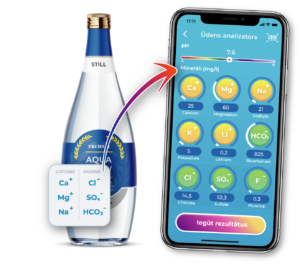
After a heavy sweat, you can choose mineral-rich natural mineral water (with total mineralization above 1500 mg/l and up to 10,000 mg/l), but most of these waters have added carbon dioxide to help the high mineral content stay in the water and not precipitate out in mineral flakes. If you choose to drink carbonated water during your workout, it is advisable to shake it well in advance and allow the gases to leave the water. It will certainly be uncomfortable to drink enough carbonated water during sport, despite the excellent mineral composition of the water. The total mineral content of the water and the recommended consumption amounts for each mineral water should also be taken into account.
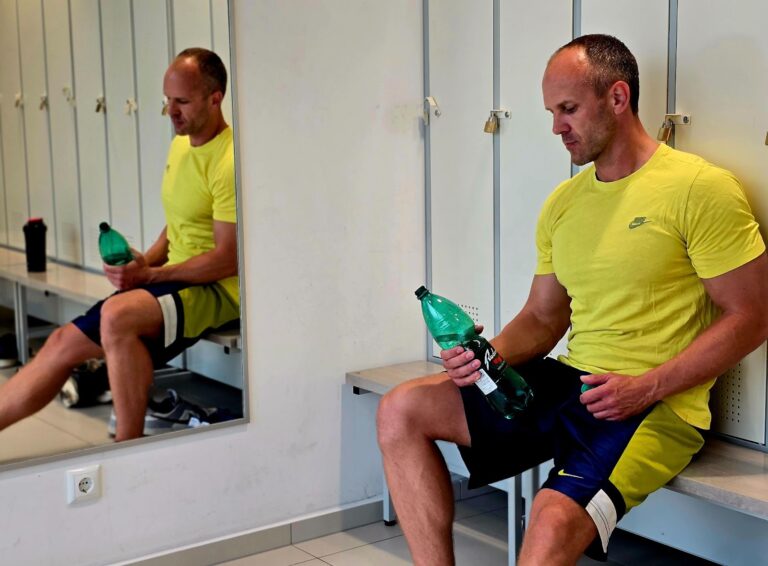
After training, focus on replenishing lost fluids and minerals.
Weight monitoring is necessary to understand more accurately how much fluid you have lost. Within two hours of completing your workout, drink approximately 500 to 750 millilitres of water for every 0.45 kilograms lost during the workout. You can calculate exactly how much of a given amount of water you have taken up in the PickAaqua app, in the ‘Water Calculator’ section.
Given that the body cannot produce minerals, they must be provided through food and drink. Mineral water is an effective source of electrolytes for athletes because the minerals are already dissolved in an ionized form, which ensures rapid absorption into the bloodstream.
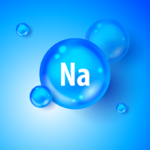
Sodium (Na) – regulates fluid balance, helps nerve function and supports muscle contraction. Sodium is the main electrolyte that is lost in sweat. Adequate sodium intake helps to maintain the correct fluid balance, prevents dehydration and muscle cramps. It should be noted that table salt is not the same as sodium in water. Highly salty waters with very high sodium content are not recommended for people with high blood pressure.
Water containing sodium should start from 200 mg/l.
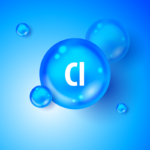
Chloride (Cl) – is important for maintaining electrolyte balance and preventing dehydration, which can be crucial during prolonged exercise.
Water containing chloride is starting from 200 mg/l.
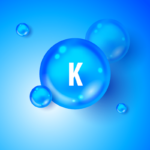
Potassium (K) – helps prevent muscle cramps, supports proper heart function, and helps maintain overall electrolyte balance during exercise. Potassium is very rare in large quantities in water.
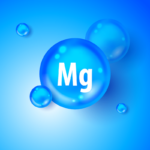
Magnesium (Mg) – essential for muscle and nerve function, prevents muscle cramps, and promotes efficient muscle function during physical activity. Essential for energy production and heart health. Magnesium is also known as the fuel of the heart.
Water containing magnesium ranges from 50 mg/l.
The average daily intake for an adult is about 375 mg/l of magnesium. Magnesium is one of the minerals that is most effectively absorbed directly from natural mineral water.
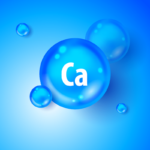
Calcium (Ca) is important for bone and dental health and blood clotting. Calcium supports muscle contraction and overall muscle function, which is essential for endurance and strength during physical activity. Water containing calcium starts at 150 mg/l. For calcium to be absorbed more effectively, it is desirable that it is 2 to 1 with respect to magnesium, and even better if the water has a large amount of Silicon (Si), which helps calcium to be absorbed.
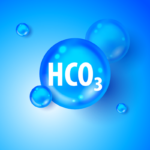
Hydrogen carbonate (HCO3) acts as a buffer to maintain the pH balance of the body. Importance in sports hydration: helps regulate the body’s acid-base balance, which becomes particularly important during intense exercise when lactic acid excretion may increase. The bicarbonate in the mineral water helps to neutralize lactic acid in the muscles and promotes recovery. Water containing bicarbonate ranges from 600 mg/l
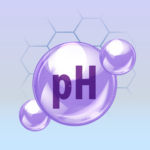
Similarly, naturally, alkaline mineral waters with a pH above 9 will help you recover faster after exercise. Two natural alkaline mineral waters from Bulgaria, AQUALAR pH 9.4 and AIRY pH 10, have been studied at Riga Stradiņš University. In one of countless measurements, lactate levels in athletes were reduced by 12.5%. The study was conducted in collaboration with the European program COST FA 1430 POSITIVE and COST FA 1005 INFOGEST. Patent No LV 15268B, C12Q1/26, A61P3/06.
It is also important to note that a natural product is completely different from an artificial one because natural waters contain many microelements that work hand in hand with macroelements. A natural product must have the inscription – Natural mineral water. If the classification of the water is not indicated on the bottle, or if it is indicated – drinking water, then such water can no longer be considered natural and there is some reason why this water does not correspond to the category of Natural Mineral Water.



We are still in the early days of assessing the potential of water. Hydration is not a one-off event, but a way of life. Especially in the fight against obesity, it is important to know that without adequate water intake, weight loss is almost impossible. Also, the right water can be chosen specifically for slimming, which will speed up metabolism, especially in people with metabolic syndrome.
https://www.ncbi.nlm.nih.gov/pmc/articles/PMC8336541/
https://www.betterhealth.vic.gov.au/health/healthyliving/Exercise-the-low-down-on-water-and-drinks
https://pubmed.ncbi.nlm.nih.gov/26166051/
https://www.ncbi.nlm.nih.gov/pmc/articles/PMC5676322/
https://pubmed.ncbi.nlm.nih.gov/16582545/
Comments are closed for this article!